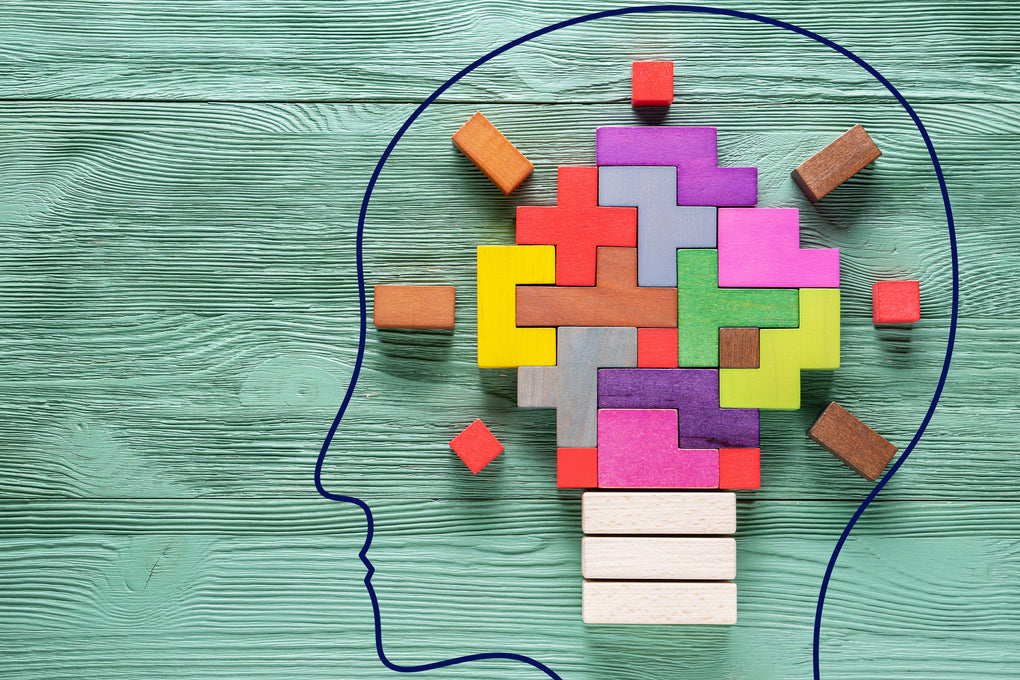"Smart" supplements - do they really exist?
8th March 2019 / Health
"Smart" supplements - do they really exist?
Zoe Milkowski

There seems to be a supplement that can help us with just about anything these days. Vitamin C and zinc make our immune system stronger, Coenzyme Q10 makes us more energised, magnesium makes us more relaxed, the list goes on… But what about a supplement to make us “smarter”? Does such a thing really exist?
"Nootropics"
A “Nootropic”, or “cognitive enhancer” can be defined as a substance with the potential to improve mental performance and cognitive function in a healthy individual. This includes day to day brain functions such as memory, focus, motivation and recall. Nootropic substances can be natural or synthetic and have a range of proposed mode of actions. We use the term “Nootropic” loosely as there is not concrete scientific evidence to confirm the cognitive enhancing power of these compounds, however there are some definite beneficial effects everyone can stand to benefit from.
L-Theanine
Each different nootropic will work in a different way to enhance cognitive function. The first example we will look at is the naturally occurring amino acid, L-theanine, most famous for being the active stimulating ingredient in tea, with even higher levels found in green tea. Tea is the second most commonly consumed beverage in the modern world, after water of course, and studies using data from human electroencephalography (EEG) have shown drinking tea, and more specifically ingestion of L-theanine, to have a direct effect on the brain.
L-theanine is able to cross the blood brain barrier (BBB) and therefore exerts a direct effect on the brain and neurotransmitter activity - most specifically the levels of serotonin and dopamine. In one particular scientific study conducted on young and healthy participants, scientists found that L-theanine had a significant effect on the participants’ mental alertness and general ability to focus.
Ginkgo Biloba
Ginkgo biloba extract, made from the leaves of the Ginkgo biloba tree, is another example of a naturally occurring nootropic. The tree is native to China and the leaves and seeds have been used for centuries in ancient Chinese medicine practices. Gingko biloba seems to be most beneficial for improving short term memory and recall. The proposed mode of action of this nootropic involves a combination of processes.
As well as possessing antioxidant activity, the Gingko extract is claimed to regulate neurotransmitter activity in the brain, protect the brain from neurocell degeneration as well as increasing cerebral blood flow. The combination of these effects is what is thought to cause the nootropic character of the extract.
Bacopa Monnieri
This non-aromatic creeping herb native to the damp, marshy areas of India and Nepal has been used in ancient Ayurvedic medicine for centuries famed for its positive neurological effects, including the improvement of memory. The active compounds, Bacosides, are responsible for the herb’s positive cognitive impact and numerous, different potential mechanisms of action are suggested as to how these compounds exert their effects.
The general consensus from a wide range of scientific studies confirm the herb to be neuroprotective as well as having antioxidant properties. A 2014 meta-analysis (a scientific analysis study that combines data and results from multiple other relevant scientific studies) found that Bacopa monnieri does indeed have “the potential to improve cognition” and “speed of attention” however more evidence and trials are needed to provide definitive data.
Brain Food
If you fancy giving “nootropics” a try, our Food Based Brain Food supplement is the perfectly natural and safe place to start. Our blend contains vitamins B and C, naturally occurring bioflavonoid antioxidants, the adaptogenic Lion’s Mane mushroom as well as Bacopa monnieri for that mighty mental boost. The combination of these potent natural ingredients and essential micronutrients ensure your brain is fed the nutrients it needs.
From The Blog
-

25th February 2025 / Health
Empowering Women’s Health: Key Supplements for Well-being
Women’s health is a lifelong journey, with each stage presenting unique nutritional and wellness needs. From maintaining energy levels to supporting hormonal balance and bone health, the right comb...
Read article -

17th February 2025 / Health
Empowering Women’s Health: Lifestyle Tips and a Key Supplement for Perimenopause and Menopause
NaomiWomen’s health evolves through various life stages, and the transition into perimenopause and menopause brings unique challenges. During these phases, hormonal fluctuations can lead to symptom...
Read article -

10th February 2025 / Health / Products
The Best Foods and Drinks to Help Your Body Recover from Burnout
Burnout is a growing issue in today’s fast-paced work culture, leaving many people feeling exhausted, overwhelmed, and depleted. While rest and self-care are essential, nutrition plays a crucial ro...
Read article




